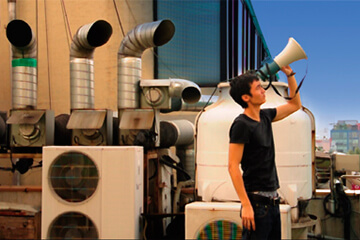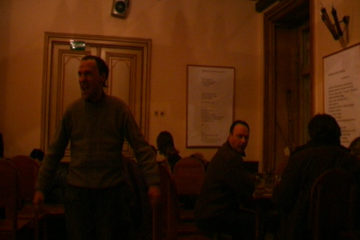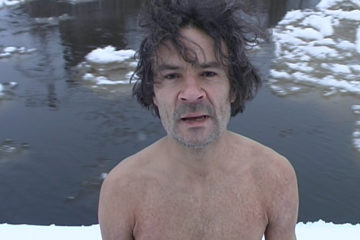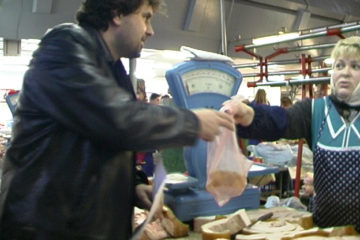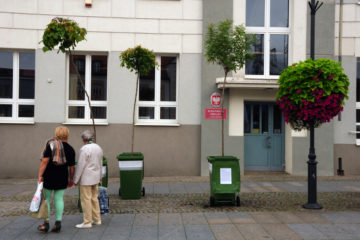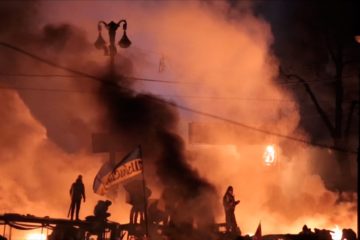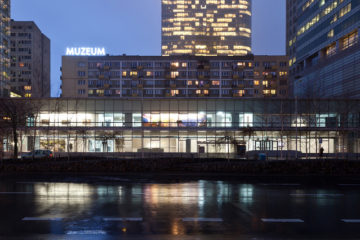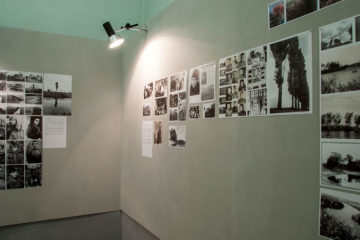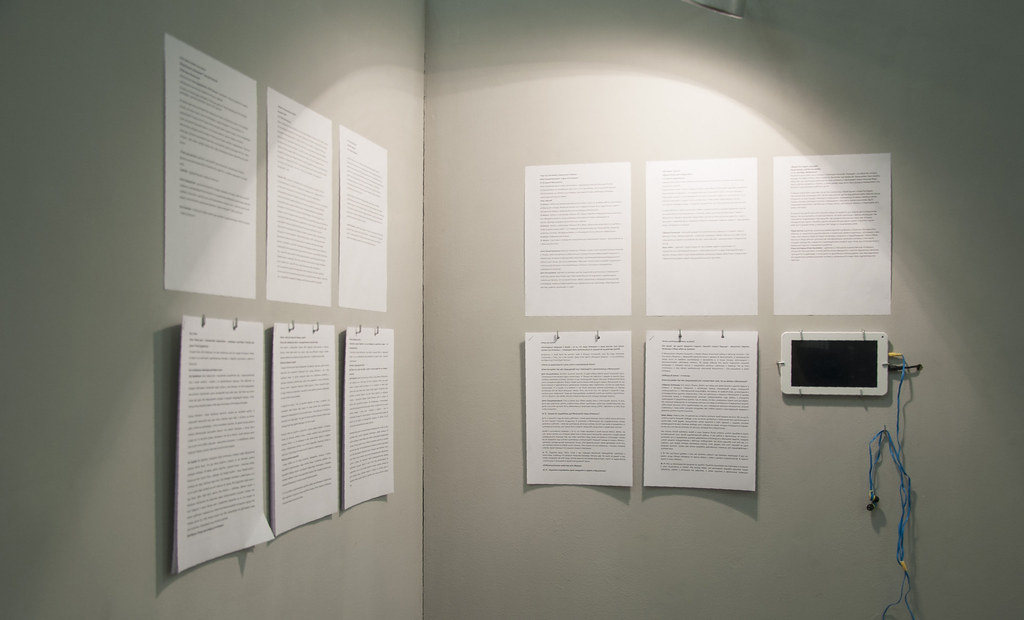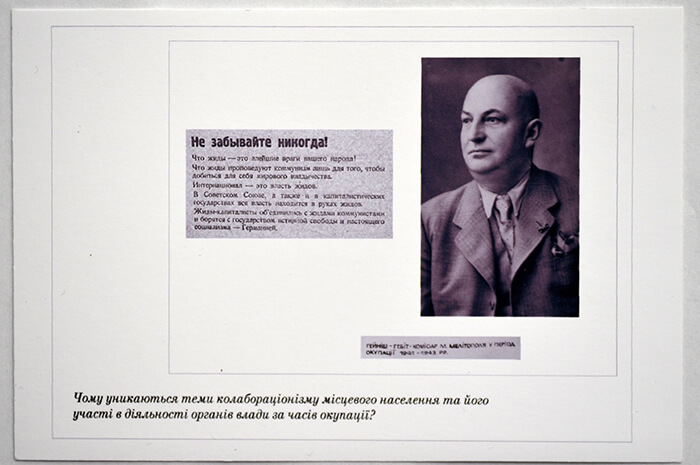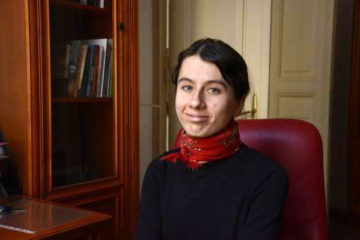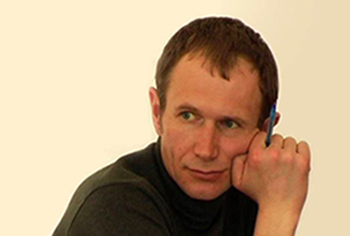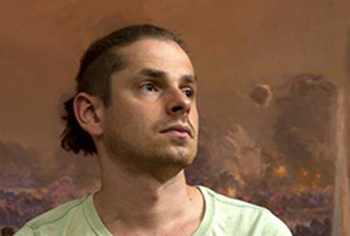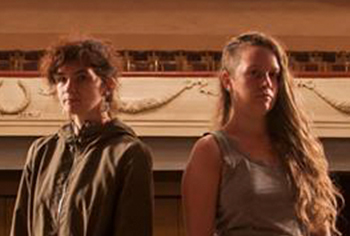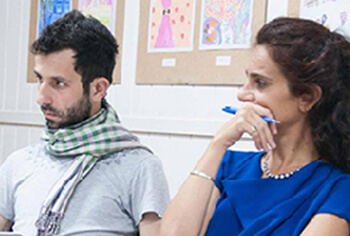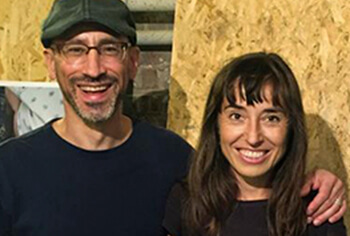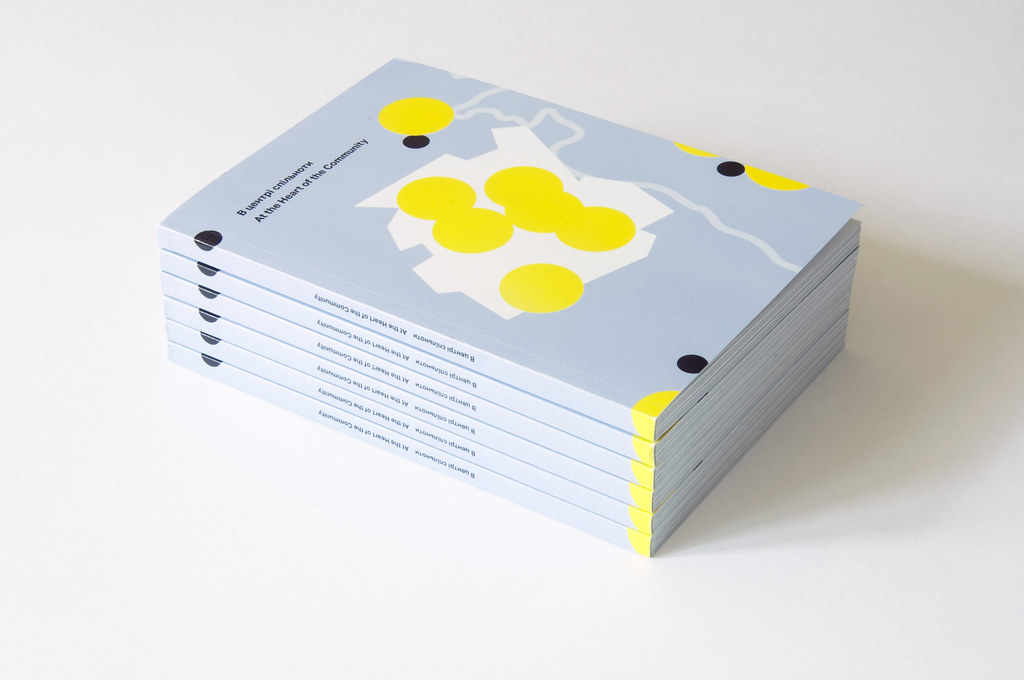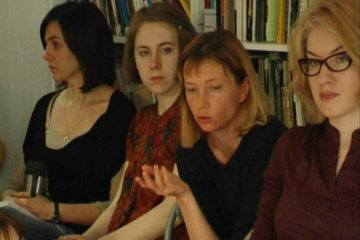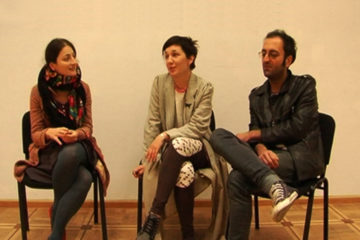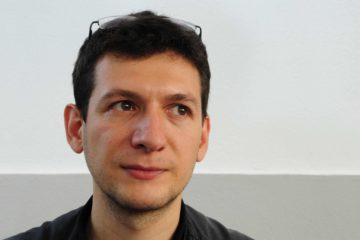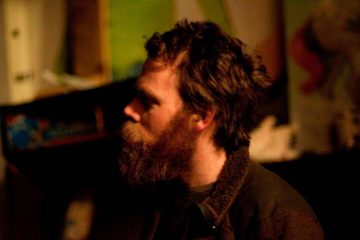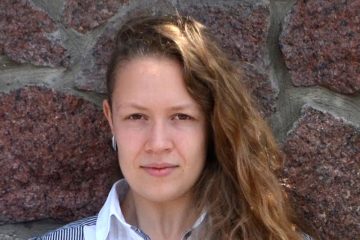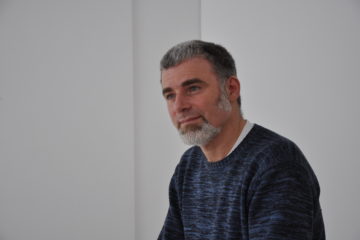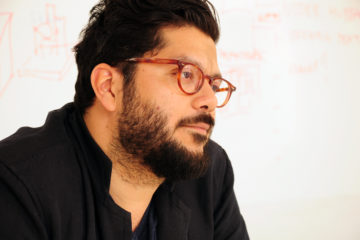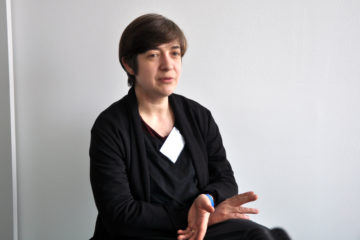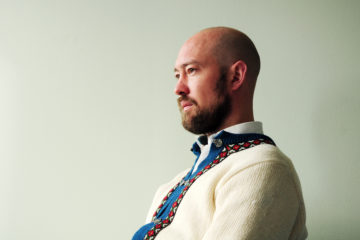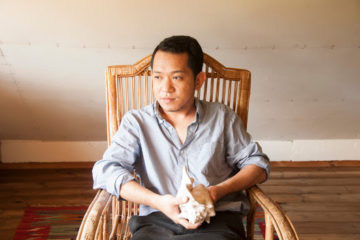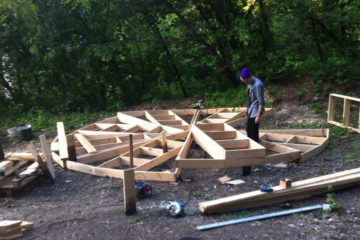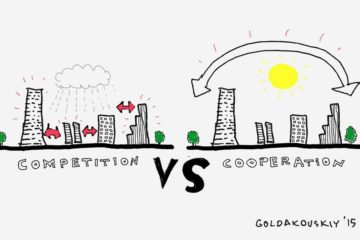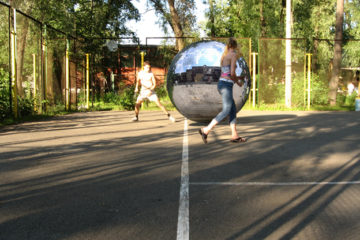Sorry, this entry is only available in Ukrainian.
Year: 2017
Dotted Lines of Speech
Series of art interventions
November, 2006 – September, 2012
Project Dotted Lines of Speech is aimed to gain a practical and artistic experience outside, the gallery and studio space. This project, developed as a series of reversible art interventions, explores area of public communication, develops the concept of event-driven scenarios for their practical implementation in the public space.
People, who are open to the exchange of knowledge, willing to contribute to the changes of the matters of public spaces, are invited to participate in the project Dotted Lines of Speech. Some models and principles were tested in 2006 at Zhitny Rynok Kyiv, Ukraine, in 2007 at cafe of House of Writers Vilnius, Lithuania, and in 2012 on Dongdaemun Market Seoul, South Korea.
Often actions of the project Dotted Lines of Speech have impromptu character, and though the outlines agreed upon in advance, meanings are formed during the intervention. Invited people can play a part of their own stories, and people from the audience are encouraged to become the heroes. As the result we have a work, the form of which is similar to public happenings, but with a paradoxical form of thinking where joint actions and communications allows to get new experience forcing to grasp an everyday reality with new sensations, in a new way.
Events in the frame of project:
Between Revolution and War
Exhibitions and public interventions
August 2014 – January 2017
Project Between Revolution and War illuminates not only what is happening in Ukraine, but also look at the mechanisms that form the basis for most of the world’s conflicts, thus increasing awareness of both major political events and the personal life stories hidden behind all the impersonal statistics of war and the conflict’s wake.
Events in the frames of project:
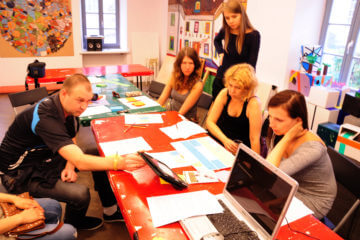
36 Stories
Bialystok, Poland
workshop, video
August 2014
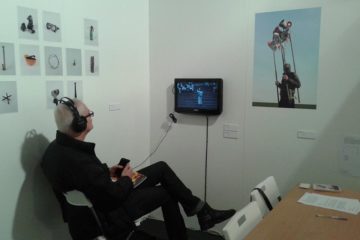
Revolution and War
Stockholm, Sweden
exhibition
April 2015
At the heart of community
It is not a revelation that today Ukrainian cultural institutions exist in a state of long-drawn crises so deep that the existence of these institutions, let alone their impact on society, is hardly noticeable. Today, a quarter of a century after the fall of the Soviet Union and at a time when Ukraine is still courageously fighting for its right to form a democratic state and civil society, there is a strong belief among Ukrainians that the complete lack of communication in the cultural sphere and the imperception of the value of the place people live, were the main triggers of the actual war that now impedes the successful transformation of the country. It is thus extremely important for the Ukraine of today, despite the difficulty of the political situation, to reconsider its cultural policy and to revitalize its cultural institutions.
During previous decades, certain countries saw the formation of a “new museology”; museological thought that criticized ossified museum practice, redirected institutional aims from the past to the present, and also pursued a strong social development agenda. Within the framework of At the heart of the community our aim was to attempt the implementation of these ideas in the Ukrainian cultural sector.
We believe that global, positive changes to social life can only be triggered by means of an unmediated contact with its individual members, the local communities they form, and through their active involvement in open dialogue and activities. In this respect, the choice of a local history museum as a platform for our project seemed to be the most natural and grounded option. On the one hand, local cultural institutions, which occupy the “lowest” position in the institution hierarchy, are the most marginalized, underfunded and “fossilized” entities, whereas on the other hand, they are by definition the places of first institutional-immersion for citizens; places of ever open doors, which were pushed into oblivion by unlucky historical circumstances. Thus, the main aim and challenge of our project was to bring such institutions back to the cultural and social maps of cities and towns, restore their own awareness of their mission in society, and provide them with the tools for effective development.
Events in the frame of the project:
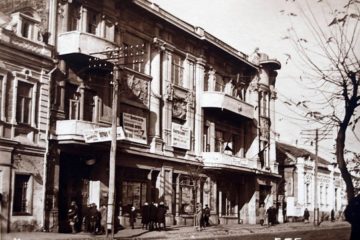
Lecture
Leyla Ibragimova
Melitopol museum of local lore
March 19 , 2015
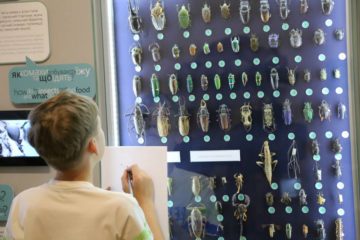
Lecture
Nataliа Dzyubenko
Strategy of Actuality: how museum can become a place essential for the local community?
March 19, 2015
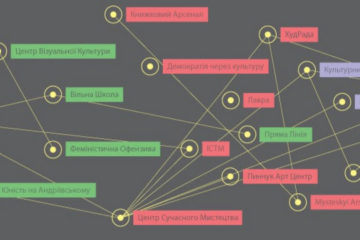
Lecture
Yuriy Kruchak
Architecture of Opportunities
March 21, 2015
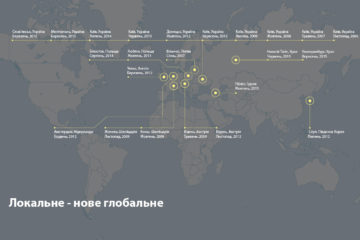
Workshop
Yulia Kоstereva
Local is the New Global
March 22, 2015
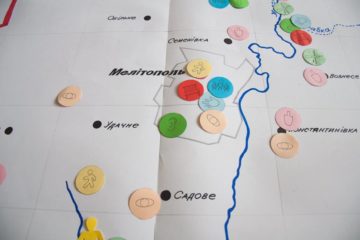
Working session
Mykola Skyba
Museum as a storyteller
May 23-27, 2015
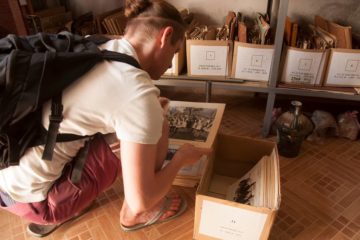
Working session
Oleksiy Radynski
What is society?
July 12-16, 2015
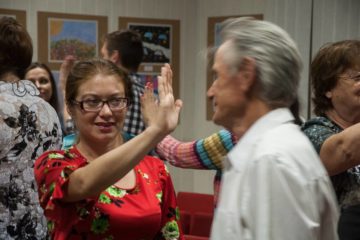
Workshop
Jana Salakhova and Nina Khodorivska
Theatre for Dialogue
July 26-30, 2015
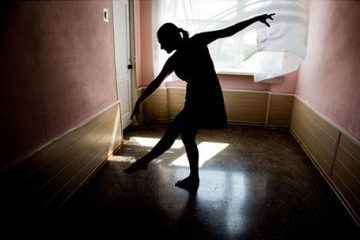
Working session
Gabriela Bulisova & Mark Isaac
Festival of memory
August 7-11, 2015
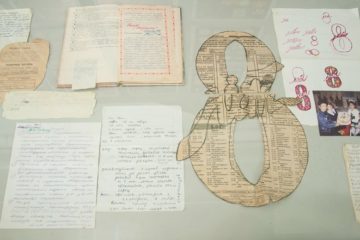
Working session
Data Chigholashvili and Nini Palavandishvili
Food as the instrument of social engagement
August 21-25, 2015
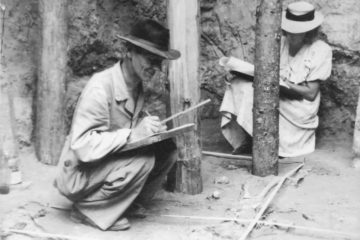
Working session
Yuriy Kruchak and Yulia Kostereva
Museum as a creator of meanings
September 17-21, 2015
Exhibition
Melitopol Museum of Local Lore
September 27 – November 29, 2015
Exhibitions At the heart of community sums up the project of the same name initiated by Open Place (Kyiv) Municipal Museum of Local Lore (Melitopol) and the Museum of Modern Art in Warsaw (Warsaw). The main goal of which was an attempt to identify an effective model of socially oriented cultural organization and testing of certain aspects of this model in the Melitopol museum of Local Lore.
From March to September 2015, there were a series of meetings (lectures, workshops, working sessions) in the museum aimed to establish the direct links between the museum and the local community, with the widest possible audience involvement in the process of studying the links between the development of cultural institutions and the development of society. Visitors became active participants in the process of rethinking the role of the museum in the life of the community, as well as their own role in the formation and development of the institution. As a result of the sessions were collected a variety of materials from diagram of the connections, video and photo documentation that illustrate the creative process during the sessions to the art objects, created both the invited experts and the participants themselves.
Among the most intriguing works on the exhibition, there are the pieces proposed by participants, the photographs representing the alternative to the permanent exhibition of the museum. These materials, along with archival documents from the personal file of the museum, telling about its history, formed the narrative of the exhibition.
Selected works
Interview
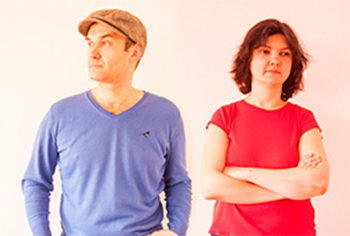
A museum is about people
Yuriy Kruchak
and Yulia Kostereva
and Yulia Kostereva
October 30, 2015
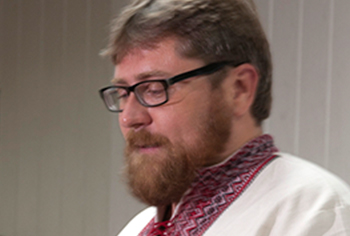
A museum is a soviet-style factory for producing culture
Denis Miroshnik
October 15, 2015
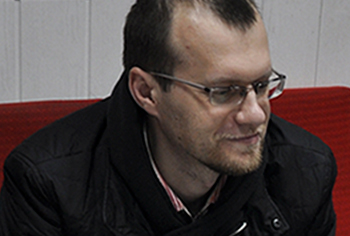
Fair competition can change museums
Mykhailo Sazhnev
October 25, 2015
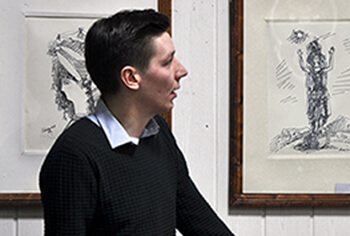
Museum. A chance for restart
Maciej Wołosiuk
November 5, 2015
Publication
The texts and interviews collected in this book belong to our expert guests, who gave lectures and lead workshops at the Municipal Museum of Local Lore (Melitopol) from May to September 2015, but also to members of the local community who attended those meetings.
All of the authors included herein reflect on the general condition of cultural institutions in present-day Ukraine, as well as offering insight into the particular condition of the Municipal Museum of Local Lore (Melitopol). All agree on one thing: that reformation of such institutions is a pressing challenge.
| Publisher: | Museum of Modern Art in Warsaw |
| Edited by: | Yulia Kostereva, Yuriy Kruchak, Katia Szczeka |
| Published: | Warsaw, 2015 |
| Language: | english, ukrainian |
| Details: | Softcover, 199 pages |
| ISBN: | 978-8364177330 |
| Category: | Book |
| Design: | Emilia Obrzut |
Team
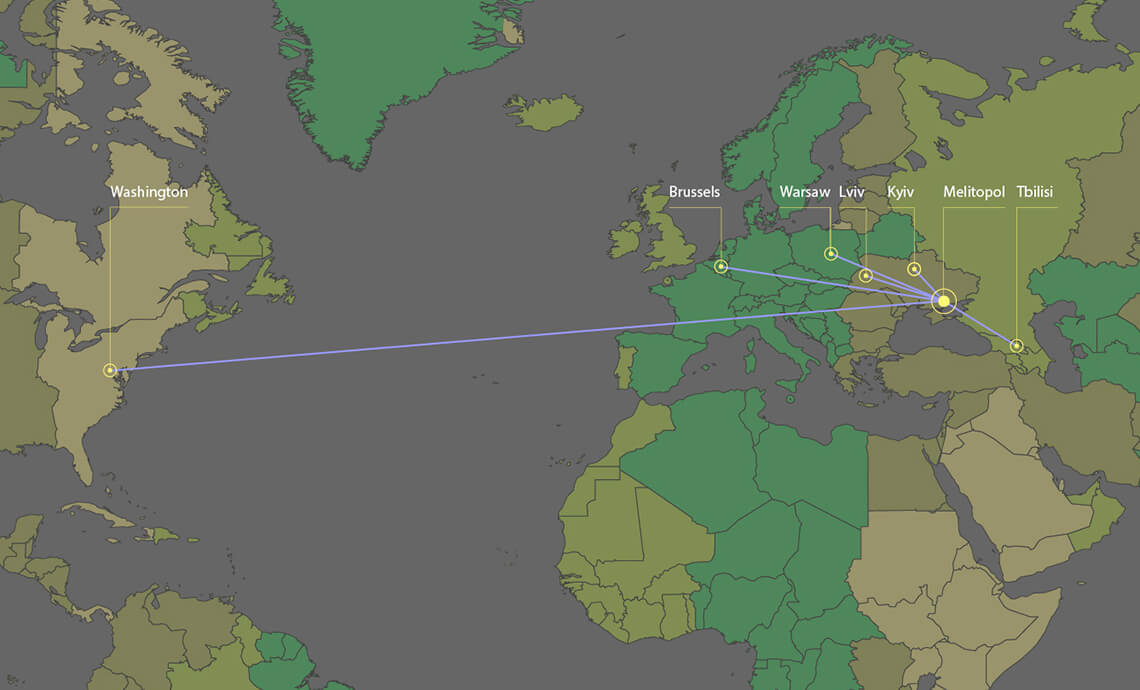
IRYNA SKLOKINA
Lives and works in Lviv, Ukraine
Historian, research fellow of the Center of Urban History of East Central Europe. Defended her dissertation about the official Soviet policy of memory of the Nazi occupation of Ukraine using the example of Kharkiv region. Graduated from V. N. Karazin Kharkiv National University (major in history of Ukraine). Worked at Kharkiv National University and the Kowalsky Eastern Institute of Ukrainian Studies (Kharkiv). A member of the Kharkiv Historical and Philological Society. At the Center for Urban History Iryna Sklokina researches historical heritage, in particular industrial and Soviet heritage in Kharkiv and Lviv.
МYKOLA SKYBA
Lives and works in Kyiv, Ukraine
Director of the “Agency for Cultural Strategies”, participant in the “Culture 2025” platform, specialist in creative economy. Graduated from the Faculty of History of the Kyiv National University. T.Shevchenko (2001) and postgraduate study in the specialty “Ethnology”. Investigates the processes of socio-cultural transformations of Ukrainian society and cultural codes of the economy. As an expert in cultural politics, he tracks the dynamics of values’ changing and their impact on the development of society. He analyzes the development of the museum sphere and the processes of forming a creative economy and the creative industries sector.
OLEKSIY RADINSKI
Lives and works in Kyiv, Ukraine
Filmmaker and writer. He is a member of Visual Culture Research Center, an initiative for art, knowledge, and politics founded in Kyiv, 2008. Since 2011, he has been an editor of Ukrainian edition of Political Critique magazine. His work deals with representation and misrepresentation of social movements and lack of thereof.
NINA KHODORIVSKA
Lives and works in Kyiv, Ukraine
Cultural researcher and journalist. Graduated from the Kyiv-Mohyla Academy in Culturology. Got Master degree of Performance Studies from Helsinki University (Finland) and Warwick (UK). Member of the NGO “Theater for Dialogue”.
JANA SALAKHOVA
Lives and works in Kyiv, Ukraine
Curator of the network “Diversity Initiative”. Joker in “Theater for Dialogue”, which operates according to the method of the theater of the oppressed. Specialist in combating racism and xenophobia, International Organization for Migration (IOM) Mission in Ukraine.
GABRIELA BULISOVA
Lives and works in Washington, D.C
Documentary photographer and multimedia artist. She was a Graduate fellow at the National Graduate Photography Institute at Columbia University in New York, NY. Her work focuses on underreported and overlooked stories affecting marginalized populations around the world and in the United States. She has numerous awards, among others: The National Press Photographers Association’s Short Grant, Winner of the 2013 Sondheim Prize, Open Society Institute’s Moving Walls 18, The Aperture Portfolio Review Top Tier Portfolios of Merit, A CEC ArtsLink Projects grant, The PDN Annual Photography Competition Winner, The CANON “Explorer of Light” award.
MARK ISAAC
Lives and works in Washington, D.C
Artist, working with photography, video, and installations. His work focuses on our capacity for positive change in an age saturated by electronic media and consumer culture. Was awarded an MFA in Photography and Digital Imaging (2008) and an MA in Digital Arts (2007), both from the Maryland Institute College of Art in Baltimore. He also studied extensively at the Corcoran School of Art and the Smithsonian Institution in Washington, DC.
DATA CHIGHOLASHVILI
Lives and works in Tbilisi, Georgia
He is working between social anthropology and contemporary art, exploring the connections between them through theoretical research and projects. He is mainly interested in the topics concerning visual and urban anthropology, ethnography, socially-engaged art practices, public space, memory, migration, foodways – some of which are usually interconnected in his collaborative work. Since 2012 he is affiliated with artist initiative GeoAIR.
NINI PALAVANDISHVILI
Lives and works in Tbilisi, Georgia
After studying Art History in Tbilisi, she graduated from the UdK Berlin in Faculty of Public and Industrial Communication. In 2006 Nini joined artist initiative GeoAIR and since then she is actively engaged in curating and organising international exchange project in Georgia and beyond its borders. Through her projects Nini researches on social and political contexts and its interpretation in the context of cultural production and contemporary art. She is interested in artistic practice that gives innovative forms and finds a language with which it is possible to speak about political and social matters
YURIY KRUCHAK
Lives and works in Kyiv, Ukraine
Artist, curator, co-founder of the artistic platform Open Place. Graduated from Kharkov art-industrial institute and the National Academy of Fine Art and Architecture in Kyiv. His works in public space transform the audience into the actors, creating a community whose behaviour and interaction serves to interpret and reveal social structures in an urban environment.
YULIA KOSTEREVA
Lives and works in Kyiv, Ukraine
Artist and curator. A Graduate fellow at the National Academy of Fine Art and Architecture, Kyiv, Ukraine (Graphic department). She is a co-founder and a member of the artistic platform Open Place. Her work explores motivation of people in their desire to make changes when apathy and acceptance of the existing situation turn to proactive position.
MYKHAILO SAZHNEV
Lives and works in Melitopol, Ukraine
A lecturer at Melitopol’s Bogdan Khmelnitsky State Pedagogical University. Mykhailo works at the natural-geographic faculty in the department of tourism, social and economic geography and regional studies.
DENIS MIROSHNIK
Lives and works in Melitopol, Ukraine
A lecturer who has long been interested in philosophy, religion, culture, archaeology, history and Buddhism: the latter has informed his lifestyle over the course of the last 15 years.
MACIEJ WOŁOSIUK
Lives and works in Warsaw, Poland
Graduated from Cultural Studies of Central and Eastern Europe at Warsaw University. His interests lay in the area of mass culture in USSR and its impact on social relations. Maciej is currently working at the Museum of Modern Art in Warsaw, Poland.
KATIA SZCZEKA
Lives and works in Warsaw, Poland
A collection specialist, cultural manager and curator currently working at the Museum of Modern Art in Warsaw, Poland. She graduated from Warsaw University (MA in British Studies) and Sotheby’s Institute of Art (MA in Fine and Decorative Art).
Partners
Villa Sovietica
Exhibition
Musee d’Ethnographie de Geneve | Conches
October, 2009 – June, 2010
Geneva Museum of Ethnography (MEG) has opened its collections to a team of anthropologist and artists from post-socialist countries like Slovakia, Ukraine, Russia or the former GDR, who gauged into the merits and perils of a cross-disciplinary approach into a specific type of material culture in collaboration with colleagues from formerly so-called non-communist countries (the West).
The working group consisted: Ekatarina Shapiro-Obermair, Franziska Jentsch, Yulia Kostereva, Yuriy Kruchak, Solo-Matine, Marcel Fanchamps, Tobias Glaser, Willem Mes. Curated by Alexandra Schussler
The result of this investigation has become the exhibition, which presents more than 1000 items for everyday use of Soviet provenance, as well as innumerable objects from the museum’s European department. The building of MEG Conches, where the exhibition was displayed, has become an object of auditing, as well. Visitors’ attention was drawn to the magnificent architecture of the villa, and to the spaces that have never been accessible before to the public. The exposition invites the audience to relate to objects using of all of 5 senses, by providing different angles, Villa Sovietica is playing with preconceived ideas.
Publication
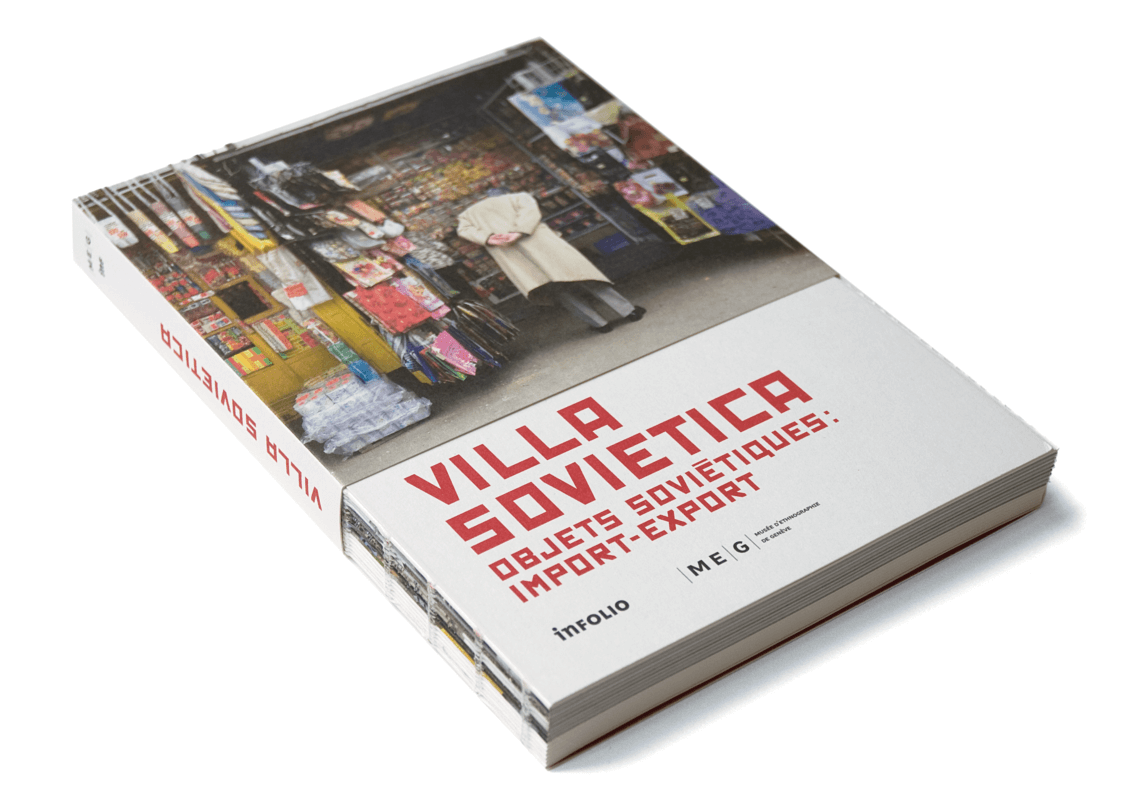
The book introduces us to the material culture of everyday life in Soviet countries. After a visual essay – exploring various contexts in which ordinary Soviet object appear – thirteen authors from different disciplines and academic traditions in the post-Soviet and Western worlds compare their points of view on aspects of materiality and spatiality. East-West relations, the history of the Soviet artefacts, photography, memory and collecting, finally emphasising the complementarity between antropology and art.
| Publisher: | Musee d’Ethnographie de Geneve |
| Edited by: | Alexandra Schussler |
| Published: | Bern, 2009 |
| Language: | english, french |
| Details: | Softcover, 238 pages |
| ISBN: | 978-2-88474-176-7 (english) |
| Category: | Book |
| Design: | Severine Mailler |
Events in the frames of the project
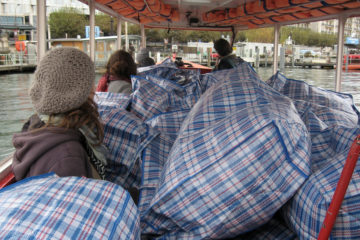
Intervention
Geneva, Switzerland
Conches – Square of Nations from 1pm to 5pm
November 7, 2009
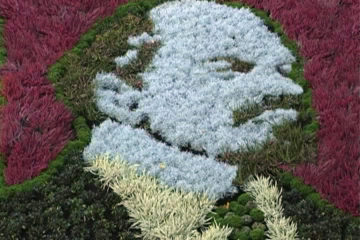
Intervention
Geneva, Switzerland
Park near the Museum of Ethnography in Conches from 2pm to 5pm
October 3, 2009
Local is the New Global
Local is the New Global raises the question of how to translate the context and personal experience into a universal statement, which would understandable for a wide range of people. The conjecture, Local is the New Global, doesn’t aim to unravel all complexities of contemporary society and its components. Instead, it proposes a methodology when these complexities can become the basis of work, rethinking problems as themes, which are only then transformed into complete works of art or direct actions.
Local is the New Global contributes an exchange of knowledge and obtaining new experience. It facilitates self-determination. It develops a culture of dialogue. A common field of understanding between participants is created, priorities of the group determined, all in due process.
Events in the frames of the project:
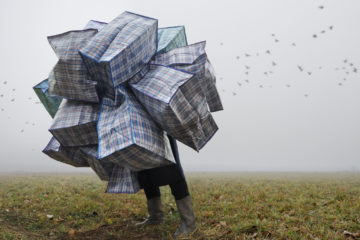
Series of Interventions
Vienna, Austria
Island in the Danube
1 April – 31 June 2009
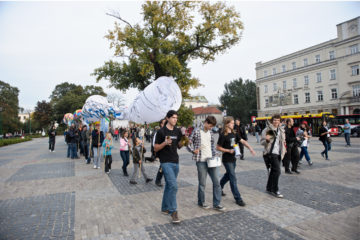
Series of the Workshops and Interventions
Lublin, Poland
suburbs and downtown
September 22 – October 8, 2011
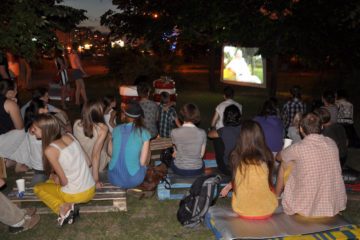
Workshop
Kyiv, Ukraine
Park Pozniaky
July 16 - 23, 2014
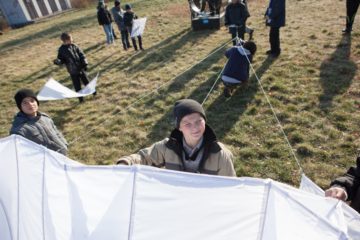
Series of the Workshops and Intervention
Kyiv region, Ukraine
boarding school Trypillia village
October 13 – November 3, 2014
Architecture of Opportunities
Architecture of Opportunities is an applied study aimed at developing a strategy of activity of the artistic institution, where society is a co-creator of common values, artistic phenomena and cultural context, and the construction of three-dimensional concept of such an institution.
The series of working sessions Architecture of Opportunities aimed to start the new practice of collaboration between various activists, social, artists, and professional communities while elaborating a concept of a multifunctional cultural center. The results can be summarized as follows: activists consider the Center as an institution where horizontal links between different communities will be set up and developed. They prefer the cluster model, where each invited organization will have opportunity to work at least 2-3 years. According to the vision of the artistic community, connections can be built vertically. They see the necessity of “service structure” which will moderate the work of communities in the center. This structure can work on a permanent basis. Cultural managers in their turn consider the potential center as “service structure”. Kiev residents understand the future center as a meeting place of different communities. All four groups came together in two important issues, namely: the main function of the center should be educational, and the center should be a place to develop a new identity.
Architecture of Opportunities project, which began as a local event, was transformed into a global study of work within the society and with the society in establishing connections and meanings.
Working sessions:
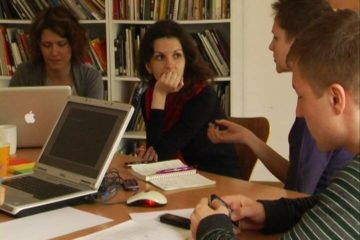
Meeting with activists
Kyiv, Ukraine
Foundation Centre for Contemporary Art from 2pm to 6pm
April 1, 2013
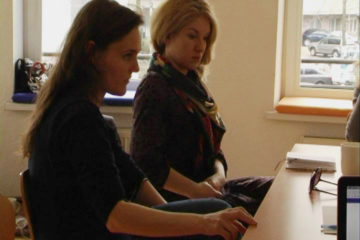
Meeting with the art community
Kyiv, Ukraine
Foundation Centre for Contemporary Art from 2pm to 6pm
April 10, 2013
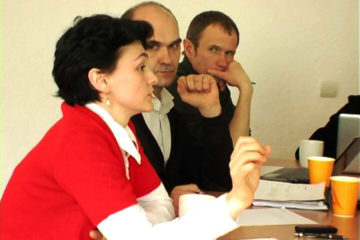
Meeting with cultural managers
Kyiv, Ukraine
Foundation Centre for Contemporary Art from 2pm tp 6pm
April 15, 2013
Interviews:
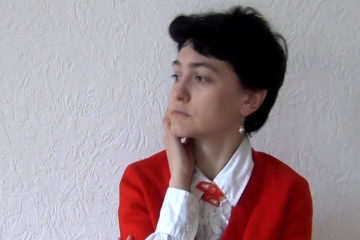
Thanks to interdisciplinary centers we’ll learn how to dream professionally
Iryna Solovey
Kyiv, Ukraine
April 15, 2013
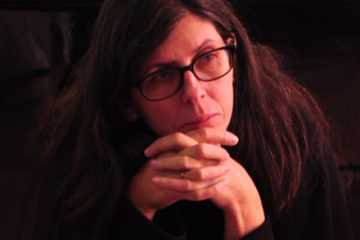
Contemporary art it is the language of people, which they haven’t distinguish yet.
Monika Szewczyk
Tbilisi. Georgia
October 26, 2013
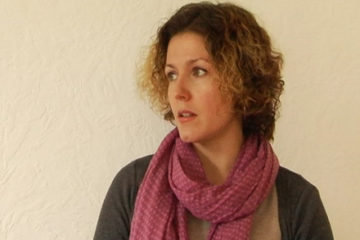
Strategies and tactics of the multifunctional center
Kateryna Botanova
Kyiv. Ukraine
January 20, 2014
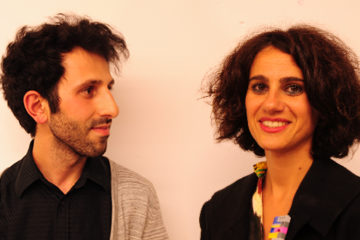
Food as the instrument of social engagement
Data Chigholashvili and Nini Palavandishvili
Bialystok, Poland
August 30, 2014
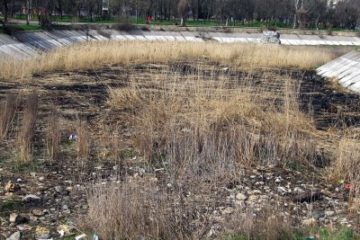
The lake saturated with people
Max Popov
Kyiv, Ukraine
March 1, 2017
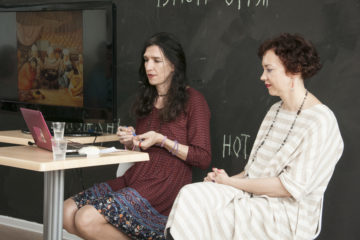
People start to feel tightly in the national frames.
Maria Vilkovisky and Ruth Jenrbekova
Kyiv, Ukraine
July 23, 2017
Workshops:
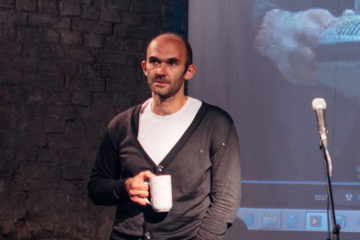
Artist vs Institution: who wins?
Kyiv, Ukraine
Osvtnya stancya 31v1
September, 2014
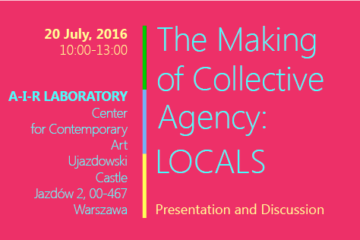
The Making of Collective Agencies
Warsaw, Poland
CCA Ujazdowski Castle
July 20, 2016
Start Time
The project’s objectives are to expand the field of artistic activity and to unite the different parts of society by means of art. The aim of Start Time project is, together with people resting in the park, develop the park, formulate its mission and the ways of development. The project discusses the questions – “What is the park”, “How it should look like” “What kind it should be”.
Developed as a series of reversible interventions, which combine the methods of sports contests, physical work, and art creation, the Start Time project establishes the links between past and present culture, as well as, ideology.
Events in the frames of project:
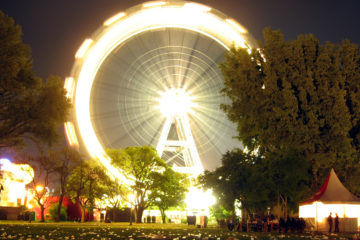
Intervention
Vienna, Austria
Prater Park from 10pm to 10:30pm
May 1, 2009

Intervention
Conches, Switzerland
Conches garden from 2pm to 5pm
October 3, 2009
Lion’s Share
The project Lion’s Share shows time as a stable structure that filled with objects of various ideological systems, and proposes to make a mental journey from present to past and back. The real stories of families that that adopted the wild animals become the basis for the revision. In the project, an animal becomes a personage, on behalf of which a story is telling. It gives an opportunity to look at reality from another point of view.
The installation Lion’s Share includes a collection of diapositives and slides produced by the State companies and individuals from the 50s to 2000 as well as actual stories. Installation being based on the intersection of the real facts and fiction provides an opportunity to see in one space the facts that have taken place before, now and after. The installation deforms the connection between the objects, images and texts, and provides a sociological analysis of the structure of everyday life.
Exhibitions:
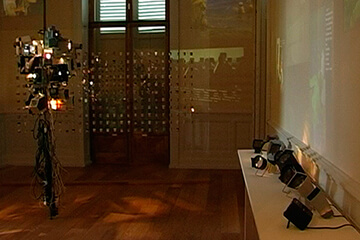
Villa Sovietica
Conches, Switzerland
Musee d’Ethnographie de Geneve | Conches
October 2, 2009 – June 20, 2010
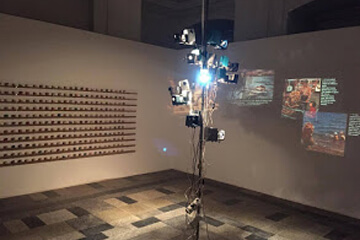
Dependence Degree
Wroclaw, Poland
Awangarda BWA Gallery
August 19 – October 02, 2016

